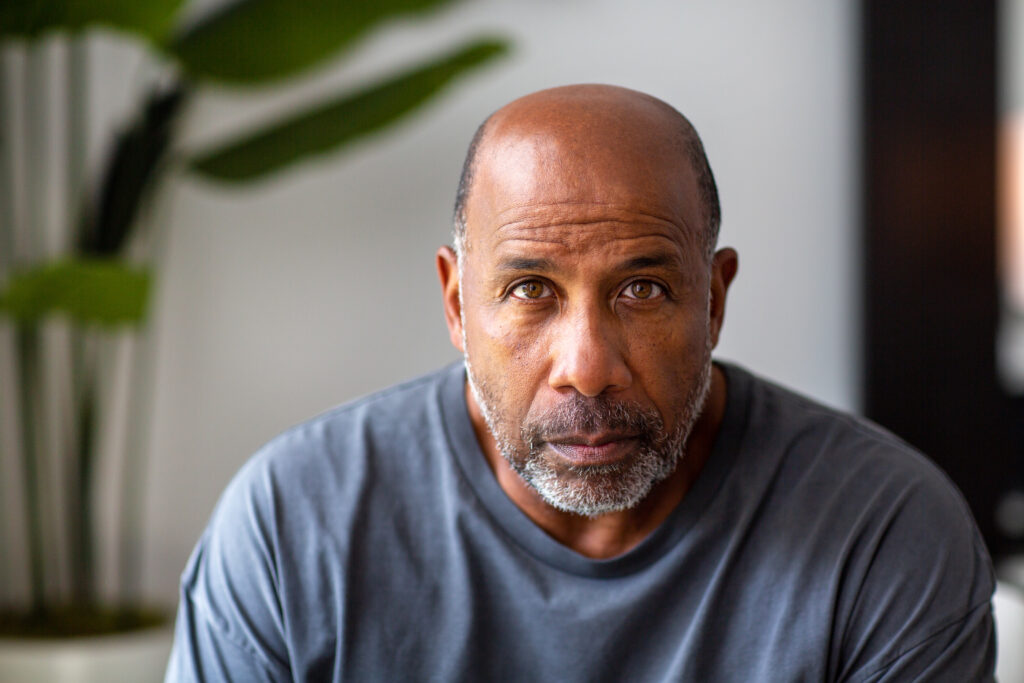This emotional conditioning is silently destroying their relationships, happiness, and health.

You’ve probably noticed it—many Boomer men aren’t exactly known for expressing their feelings openly or comfortably. It’s not necessarily due to personal failings, but rather the emotional environment they were raised in. For a generation of boys growing up in the 1950s and 60s, emotional suppression was not only encouraged—it was demanded. Boys were taught to toughen up, hide their emotions, and never show weakness, especially in front of others. This rigid conditioning shaped their identities and dictated how they interacted with the world.
But buried emotions don’t disappear—they transform into internal stress, emotional distance, or even physical illness. These outdated lessons on masculinity have cost Boomer men dearly, affecting not just their own health and happiness, but also the emotional bonds they share with their partners, children, and friends. The cost of emotional suppression is high, and unfortunately, many are still paying it. Let’s take a deeper look at 12 specific ways society conditioned Boomer men to hide their feelings and the harm those teachings continue to cause.
1. They were told “real men don’t cry.”

From the time they could walk, many Boomer boys were given clear instructions: don’t cry, don’t whine, and certainly don’t act “soft.” A scraped knee wasn’t a moment to be comforted—it was a test of how quickly they could “man up.” Parents, coaches, and even teachers often reinforced the idea that tears were shameful, a betrayal of one’s masculinity. If a boy showed emotion, he was either teased, scolded, or told to keep it to himself. Crying, in their world, was only acceptable for women and small children.
This ingrained belief left many men with nowhere to go when grief or pain struck. Even as adults, they often found themselves swallowing their sadness, pretending everything was fine, and pushing through emotional pain in isolation. Over time, this leads to emotional numbness, depression, and an inability to connect deeply with others. The idea that crying equals weakness continues to haunt many, blocking their access to emotional release and healing, as reported at Psychology Today.
2. Their dads taught them to “man up.”

Many Boomer fathers had survived wars, economic hardship, and strict upbringings themselves, so emotional expression wasn’t exactly high on their list of priorities. These fathers believed that being a man meant showing strength at all times, never appearing vulnerable, and leading with authority, not empathy. That belief system was often passed down with firm hands and few words. Boys who cried or got scared were met with stern glares, dismissive comments, or even punishment. Emotional discipline was the measure of manhood.
As boys became men, those early lessons hardened into emotional habits. When they became fathers themselves, many lacked the vocabulary or comfort level to express love, fear, or sadness openly. They defaulted to silence, stoicism, or problem-solving—often leaving their families feeling disconnected, even if their intentions were loving. This legacy of emotional distance has echoed through generations, shaping how they connect with loved ones today, as stated at The Good Men Project.
3. Schools rewarded stoicism over sensitivity.

In classrooms and gymnasiums, the message was clear: boys who held it together under pressure were admired, while those who showed sensitivity were mocked. Being “emotional” meant you were weak or too feminine. The culture of education during the mid-20th century favored discipline, self-restraint, and emotional control—traits that seemed noble on the surface but often left emotional needs unmet. Boys quickly learned that vulnerability equaled embarrassment, especially when peers and teachers viewed it as unacceptable behavior.
This fear of emotional exposure stuck with them. As adults, many Boomer men avoid discussing their feelings in any setting, including therapy or personal relationships. They were conditioned to stay in control, to avoid showing cracks in their emotional armor. And now, many suffer quietly with anxiety, depression, and loneliness, unsure how to express themselves safely or confidently, as mentioned at Verywell Mind.
4. They were told talking about feelings was for women.

Boomer men were brought up with a rigid sense of gender roles, where emotions were labeled “feminine” and therefore off-limits to boys. Boys who talked too much about their feelings were told they were acting like girls. Emotional intelligence wasn’t praised—it was ignored or ridiculed. Over time, they learned to suppress their emotions or redirect them into more “acceptable” outlets like anger, sports, or work. Emotional complexity was something they were never taught to navigate.
As adults, many still carry this inner discomfort. When their partners ask them to share how they feel, they often freeze, become defensive, or simply shut down. It’s not because they don’t care—it’s because they were never given permission to be emotionally fluent. This cultural conditioning created emotional blind spots that still impact marriages, friendships, and even their self-worth.
5. They were taught to value action over introspection.

Boomer men were raised to believe that solving problems was better than discussing them. If something went wrong, the best course of action was to fix it—not to dwell on it. Reflection, emotional processing, and vulnerability were seen as time-wasting or indulgent. Productivity and performance were the primary measures of value, not emotional insight or connection.
This emphasis on action over introspection stifled the development of emotional awareness. Instead of asking themselves why they felt disconnected or angry, they focused on checking off tasks or burying themselves in projects. The result is a generation of men who struggle with self-awareness and internal balance, often masking pain with busyness or distraction instead of healing through honest reflection.
6. Vulnerability was seen as a weakness in the workplace.

During the height of Boomer men’s careers, the professional environment demanded confidence, decisiveness, and emotional detachment. Vulnerability—expressing fear, doubt, or even empathy—was seen as unprofessional and risky. Men learned quickly that to climb the ladder, they had to maintain composure and never let their guard down. Feelings were private, irrelevant, and potentially damaging to one’s reputation.
Decades later, these men often carry that same guarded posture into retirement and personal relationships. Even when they want to be open or supportive, they default to the stoic habits they relied on for years. Vulnerability remains a foreign language to many of them, and it continues to limit their emotional depth and the quality of their closest connections.
7. Emotional language wasn’t modeled at home.

For many Boomer boys, emotional communication was simply never part of family life. Their parents, often hardened by war and survival, rarely spoke about feelings, modeled emotional expression, or demonstrated healthy emotional responses. If a parent did express emotion, it was usually anger or frustration—never sadness, anxiety, or tenderness. As a result, these boys grew up emotionally illiterate.
Without those early examples, they entered adulthood lacking the tools to identify or talk about their own emotional experiences. They often felt something inside—stress, sorrow, disappointment—but had no framework to label or understand it. Even when they try to be emotionally available now, they often don’t know how, and that internal confusion feeds into emotional withdrawal and relational misunderstandings.
8. The media glorified the “strong, silent type.”

Boomer boys grew up idolizing cowboys, war heroes, and hard-boiled detectives—figures who never flinched, never cried, and never explained themselves. These characters were stoic, emotionally distant, and revered for their toughness. Hollywood rewarded silence and strength over sensitivity and self-awareness. Vulnerable men were cast as weak, awkward, or comedic relief.
This romanticized version of masculinity shaped how Boomer men saw themselves. They aspired to that rugged strength but paid the price emotionally. It told them they had to handle everything alone, which created an inner world where feelings were neither safe nor acceptable. These ingrained archetypes are hard to shake and continue to impact how many view their role as men today.
9. They were expected to be the family rock.

The responsibility of being the “rock” of the family meant showing no cracks. Boomer men were taught that their primary value was in being dependable, strong, and unshakeable. They were expected to hold it together during crises, provide for everyone, and never show signs of emotional struggle. Any sign of inner turmoil was seen as weakness—or worse, failure.
This belief left little room for emotional authenticity. When things became overwhelming, instead of reaching out or opening up, many retreated deeper into themselves. They feared that by sharing their worries, they would cause more stress for their families. But emotional isolation doesn’t protect—it disconnects. And that disconnection has quietly eroded many of their closest relationships.
10. Their friends didn’t talk about feelings either.

Boomer men often formed friendships through shared activities—working on cars, watching sports, or having a beer. These friendships, while loyal and genuine, typically avoided emotional depth. Conversations rarely strayed beyond surface-level topics. Opening up about anxiety, grief, or emotional struggles was considered taboo, even among close friends.
As they aged, many found themselves without emotionally supportive networks. They may have decades-long friendships, yet still feel emotionally alone. The silence among peers reinforced the idea that emotional expression was off-limits, and many now lack the peer support needed for emotional healing or growth.
11. Religion often pushed emotional restraint.

For those raised in strict religious households, emotional expression was often linked to self-control, discipline, and even morality. Feeling anger, fear, or sadness could be interpreted as a lack of faith or a spiritual shortcoming. Joy was encouraged—but only in a reserved, controlled manner. Anything more raw or unfiltered was frowned upon or suppressed.
This led many Boomer men to judge their feelings, rather than understand them. Instead of exploring their emotions, they were taught to pray them away or feel guilty for having them. Over time, this fostered internal conflict and emotional shame—barriers that still prevent many from feeling safe enough to open up, even in supportive settings.
12. They never unlearned these damaging lessons.

The most tragic consequence of all this emotional conditioning is that many Boomer men never got the chance—or the encouragement—to unlearn it. These beliefs and habits became so ingrained that they now feel like identity, not just behavior. And unlearning something you’ve been taught your whole life requires courage, reflection, and support that many never received.
As a result, many are now struggling with emotional distance, physical health issues linked to stress, and fractured relationships they don’t know how to repair. Their inner world often remains locked behind doors built long ago. But it’s never too late to question those old lessons and begin rewriting the emotional script—one honest, heartfelt moment at a time.
